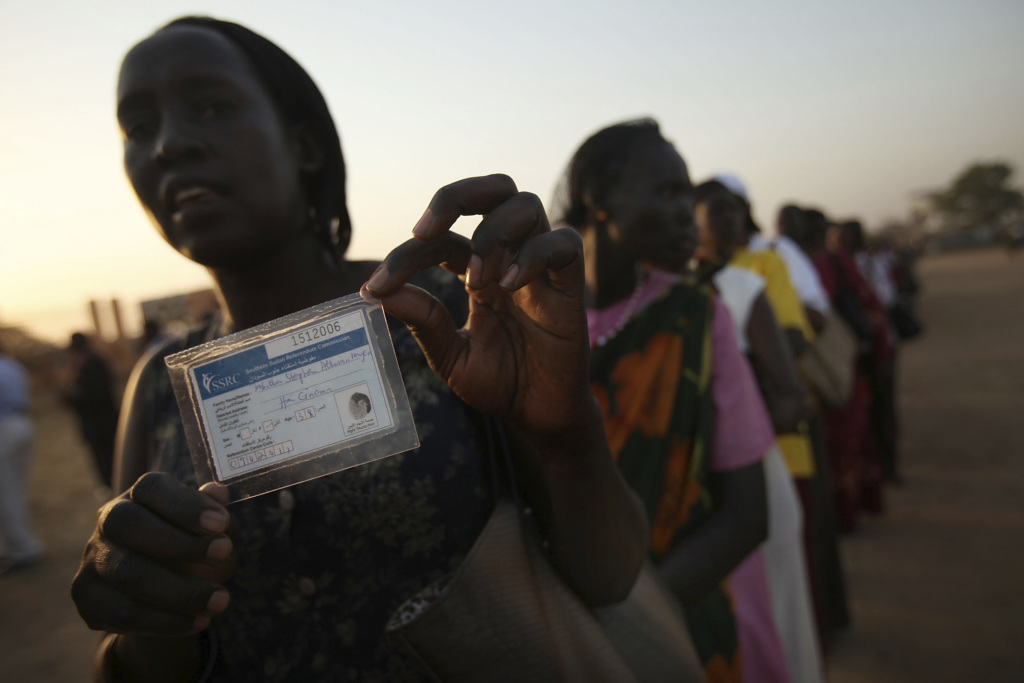Lame Excuse: Rubio Cuts Off Funding to the United Nations Population Fund (UNFPA)

This year is one of great transition for many African countries. In 2015, there are at least 19 elections being held across Africa in which intensive political (and related economic and social) change may occur. This is big news, but so far the international media has missed an important part of the story.

As a U.S.-based organization that works on international reproductive health and rights, we have found that very little, if any, English-language international news coverage has touched on the impact of elections on women in Africa, especially in countries of conflict. While election coverage is understandably broad and covers a wide range of issues, this dearth of coverage of the elections’ impact on women is unacceptable, particularly considering the disproportionate negative impact of transition periods on women, the already-tenuous rights situation for women in many of these countries, and women’s sheer population presence.
Consider this: Lesotho currently has the highest rape rate in the world, with 91.6 rapes per 100,000 people. Women in South Sudan have abysmal access to reproductive healthcare, with only 5 percent of them giving birth under the care of a professional trained to manage complications, resulting in the highest maternal mortality rate in the world. In Nigeria, spousal violence against women is considered lawful if there is no “grievous hurt.”And across Africa, tens of millions of women and girls have experienced female genital mutilation in 27 different African countries.
All of these countries have elections this year. A change in political leadership and periods of transition in any of these countries can serve to either exacerbate or help address these issues, and thus it is incredibly important that careful attention is paid when these transitions occur.

Indeed, during periods of transition, including elections, women are more prone to having their rights violated or revoked, and are more vulnerable to sexual violence. For example, if elections are conflict-prone and/or accompanied by violence, women are especially susceptible to an upsurge of sexual violence, intimidation, and physical abuse. Additionally, following both violent and peaceful transitions, newly elected officials may support and enact policies that suppress women’s rights.
The potential for women’s rights violations is even more of a concern in countries in which there is already an active conflict, as conflict further increases the likelihood that women’s rights will be exploited. Several countries in Africa—including the Central African Republic, Nigeria, and South Sudan—fall into the second category of being election-bound but also currently engaged in conflict, creating a higher risk of instability and negative consequences for women.
While periods of political transition and conflict present many challenges themselves, this does not mean they should be devoid of women’s (and all) rights-based advocacy. Elections and conflict are not moments to “get through” and then incorporate women’s rights later. Instead, one should perpetually incorporate and advocate for women’s rights during periods of political transition and conflict, as this will help ensure that women’s rights are a permanent fixture of post-conflict and/or post-election society. Indeed, while times of transition can present “a period of immense vulnerability for women, they also present a unique window of opportunity…to lay the foundation for women’s longer-term empowerment.”
It is not too late to address this void in discourse and advocacy on the upcoming elections across Africa. Candidates, advocates, and media must do more to ensure that women’s empowerment becomes a regular part of election rhetoric in the upcoming African elections. Candidate’s records—or lack thereof—on promoting women’s rights, including sexual and reproductive rights, should be publicly available and a part of the dialogue.
If as a global community we are truly committed to advancing rights, we have to stop leaving out women. Women are half the world’s population and, in most countries, half the electorate. Ensuring their rights should be a priority for everyone.
We are fighting back against the onslaught of harmful policies that discard reproductive rights.
Stay informed about the issues impacting sexual and reproductive health and rights.
